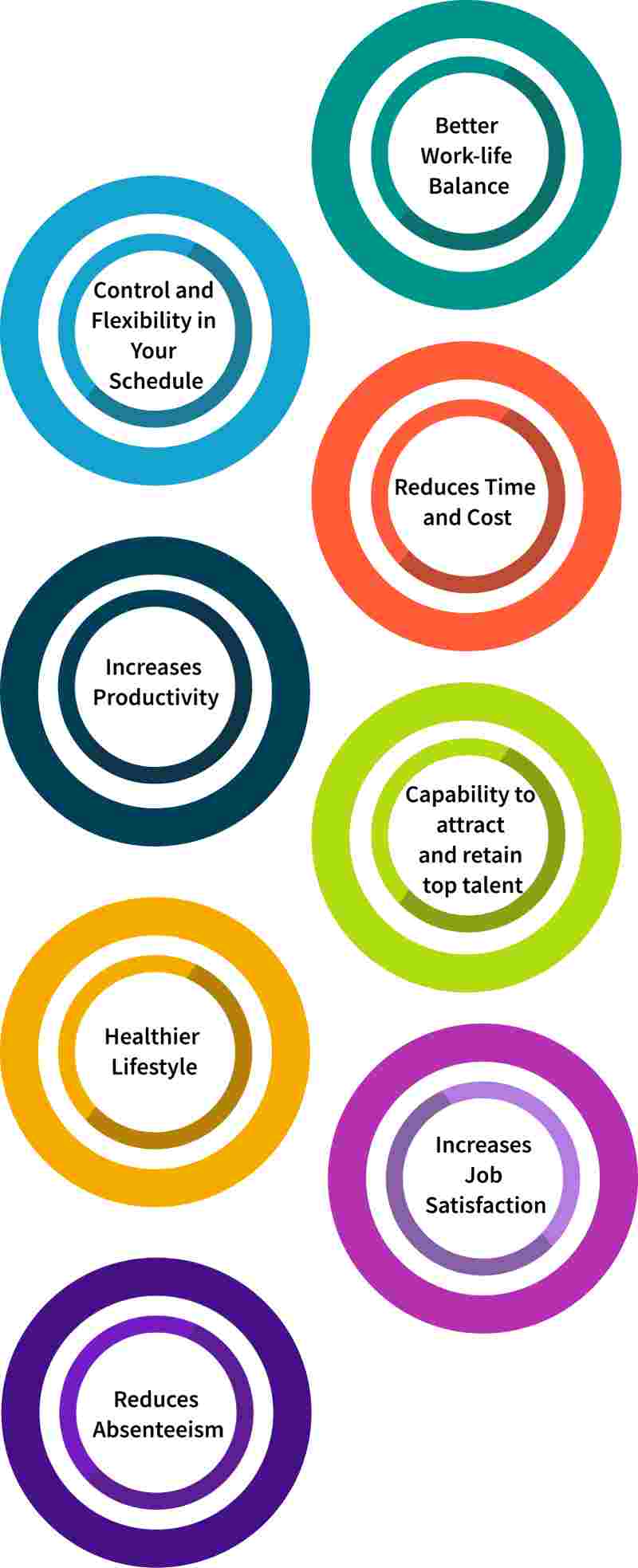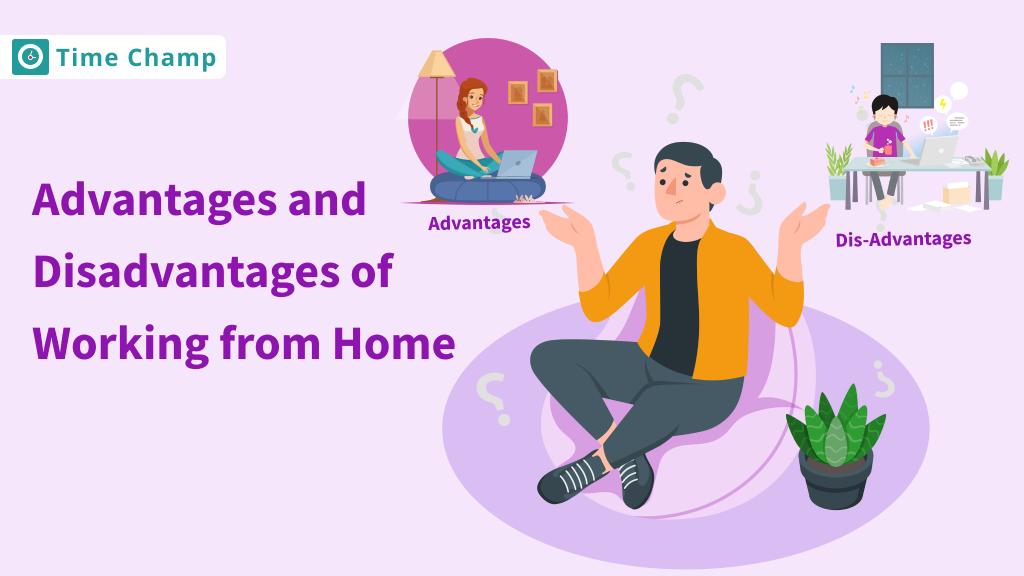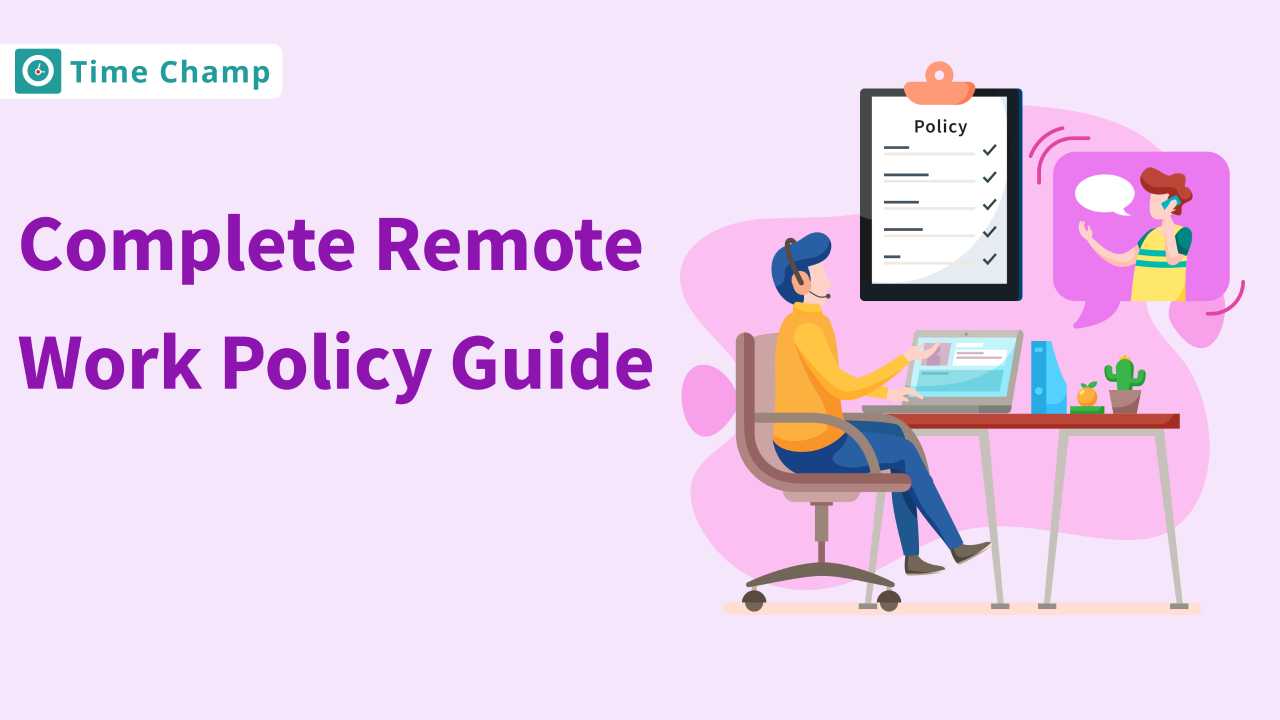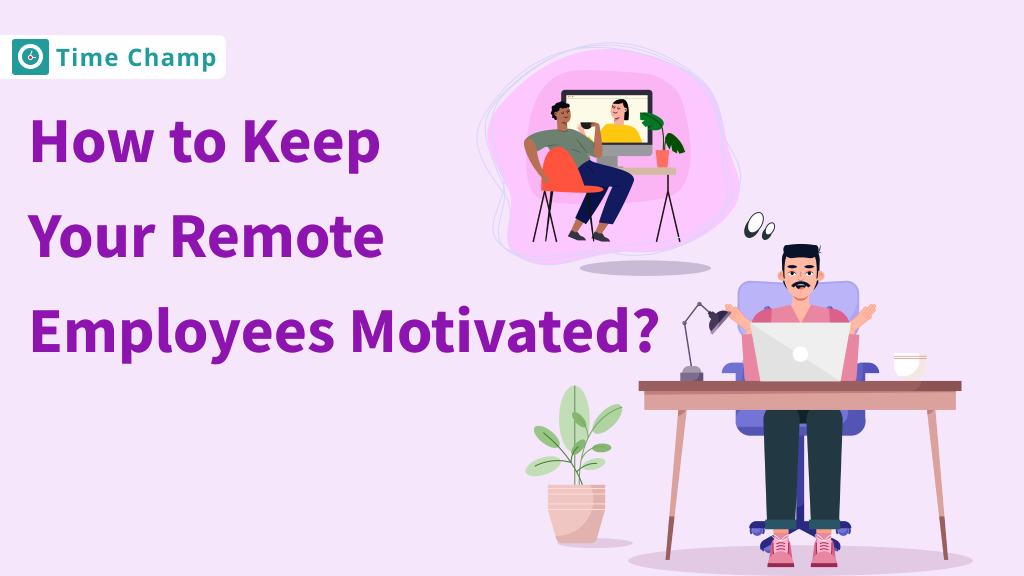The pandemic has changed the way people work, with remote work becoming the new norm. The 2021 ACS 1-year data from the U. S. Census Bureau shows that the population working from home as the primary workplace increased by threefold between 2019 and 2021.
For anyone who is a remote worker or planning to become one, it is crucial to know the advantages and disadvantages of working from home. Here’s a simple rundown of 13 key pros and cons to help you navigate this shift and make the most of working from home.
Advantages of Working from Home
These days, remote work isn’t just a buzzword- it’s become a real game changer for how people work.
Just imagine – no more traffic jams, no more fixed working hours, or awkward talks.
Instead, you get the freedom to work from wherever suits you best, whether that’s your home, a café, or even a beach (if the Wi-fi’s good!). Beyond the obvious perks, remote work has some real benefits that make life a lot easier and more enjoyable.
Let’s dive into what makes working remotely such a great option for many.

1. Better Work-life Balance
One of the best advantages of remote work is that it improves work-life balance. Without any daily commute, you get quality hours to spend on what matters to you. It could be spending time with your loved ones, picking up a new hobby, or simply unwinding at home. Working eight or more hours a day does not leave much time for family, especially when you factor in commuting and sleeping.
2. Control and Flexibility in Your Schedule
Remote work allows you to adjust your working schedule. This flexibility enables them to have breaks whenever you want to and eliminates the pressure of traditional work environment. It enables you to work from their location. By working from home, you can manage your schedule as you want to, which isn’t possible in rigid office hours.
3. Reduces Time and Cost
It is also important to note that working remotely can be a lot cheaper. You don’t have to spend much on traveling, be it in the form of fuel, parking fees, or fares for public transport and you also save on other expenses such as buying lunch, etc.
It also helps to cut down on office space, which helps lower rent, utilities, and maintenance bills. Plus, the flexibility you get from remote work can reduce turnover, saving the company from constantly hiring and training new people. Cutting down on these in-person work expenses can help you save more money or even allow you to invest part of your income.
4. Increases Productivity
Remote work leads to increased productivity for various reasons. Without any distractions of the office environment, such as unnecessary meetings or interruptions from coworkers, you can focus more on your tasks.
The flexibility to create your schedule also allows you to work during your most productive hours, whether it be morning or late at night. It helps to achieve more during these hours. Additionally, without any stress and commuting, you can start your day feeling more refreshed and energized. This helps to improve efficiency and helps you to get more done in less time.
5. Capability to Attract and Retain Top Talent
Remote work has been a great advantage for companies to attract talented youngsters. By offering work-from-home or flexible working hours, organizations can attract the best talent in the market. This not only helps with recruiting from different areas but also aids in retaining employees by offering flexibility to meet personal needs. When employees are given work flexibility, they are more likely to stay with the organization long-term, thereby increasing workforce stability.
6. Healthier Lifestyle
Remote work can rapidly improve your health. With the freedom to set your schedule, you can prepare healthier meals at home instead of depending on fast food. You also have the chance to do some exercise or stretching throughout the day, which helps to defeat the effects of sitting for long hours. It provides you with the flexibility to create a daily routine that supports your physical and mental health.
7. Increases Job Satisfaction
When you are allowed to work from home, your level of job satisfaction rises. This sense of freedom assists in achieving a better work-life balance, which in turn increases enthusiasm and commitment.
Telecommuting makes you feel valued by your employer because you aren’t closely supervised and can organize your work independently. It assists you develop a schedule that works best for you, making you happier and more motivated to perform at your best.
8. Reduces Absenteeism
Working from home can help cut down on sickness absences. When you are remote, you don’t have to worry about catching or spreading germs that are more common in office settings where people are close together. You can also continue working even if you’re not feeling best but aren’t seriously ill, which means you’re less likely to need to take full days off.
Plus, the flexibility of remote work allows you to manage your health better and work at a pace that suits how you’re feeling, leading to faster recoveries and less disruption to your work and the team’s overall productivity.
Disadvantages of Working Remotely
Remote work is amazing, but it has its unique difficulties! You may lack communication and interaction with your colleagues or have difficulty setting boundaries between the working and personal spheres.
Understanding these issues will help you prepare for them and get the best out of your remote work experience.

1. Isolation and Loneliness
Yes, it is fine to work alone but for how long?
Imagine going to the office every day: greeting colleagues, grabbing a cup of coffee, sitting down for lunch, and working.
Sounds great! Right?
Sitting and working for hours at home alone can cause loneliness and feelings of isolation as well. While some attempt to counteract this by working from co-working spaces or cafés, current social distancing measures can limit these possibilities. Lack of team engagement for an extended period may cause frustration, burnout, and reduced efficiency.
To overcome these challenges, it is necessary to keep connected with colleagues, for instance, through video conferences or daily calls.
2. Home Distractions
We can’t ignore the fact that distractions at home are severe. You might get distracted by chores such as washing clothes or dishes or by members of your family. If you have children at home, it would be difficult to manage your work and them.
The familiar environment of home can lead to laziness, making it easy to get distracted by watching TV or browsing social media instead of working.
To avoid these distractions, create a dedicated work area, follow a schedule, and communicate with the people around you, make sure that they understand that you need to be left alone during work hours.
Also Read: How to Manage Work from Home Distraction
3. High-Security Risks
When you are working remotely from home or other public places, you use less secure networks and personal devices that are that are more vulnerable to hacking. They may not be as protected as company equipment.
For example, they may not have the latest antivirus software installed. Moreover, working remotely can create an environment where it is simple for scammers and other fraudsters to trick employees into divulging information. It can also be challenging to implement security measures and ensure compliance when people are dispersed.
Before adopting remote work, companies must have effective remote work security policies, provide secure devices, and educate employees on how to avoid cyber risks.
4. Decreases Collaboration
Another disadvantage of remote work is that it can result in little communication between the workers. People work in different places, as they hardly interact with each other using communication platforms such as Teams and Slack, among others for business purposes.
Casual communication such as face-to-face talk or ad hoc is not possible which may reduce creativity and also slows down the decision-making. Remote work relies on planned meetings and communication channels, which can result in delays in feedback and a lack of immediate response sometimes. This reduction in direct interaction can affect the cohesiveness of the team and the ability to develop a positive work culture.
5. Dependency on Technology
Remote work highly depends on the technology. This dependency may constantly leads to a lot of problems such as slow connections, software bugs, or faulty equipment. When you are working remotely, you can’t always get IT support right away and have to solve these issues by yourself, which costs time and reduces efficiency. Simple activities such as video calls or sharing files would become difficult if technology isn’t proper.
6. Slow Work Progress
Sometimes, the office environment boosts our energy. At home, distractions such as household chores or family interruptions, along with the absence of a structured office routine, can all make you lazy and slow down progress.
7. Potential Bias Against Remote Workers
When working in a remote environment, you may not get enough recognition for your work, which can drastically lower your confidence. To address this, seek information from potential supervisors about how they manage and promote remote employees to increase their chances of promotion. If you are already working remotely, discuss with your manager or HR and advocate for better inclusion policies.
Also Read: 30+ Work from Home Essentials for a Professional Remote Setup
Conclusion
Some of the advantages of working from home include flexibility, time and money saving, and improved work-life balance, which helps to improve productivity. But it also has its drawbacks such as loneliness, distraction, and the overall dependence on technology. For effective remote work, one needs to communicate with the team and adhere to security protocols. If implemented correctly, remote work is a good way to work.








